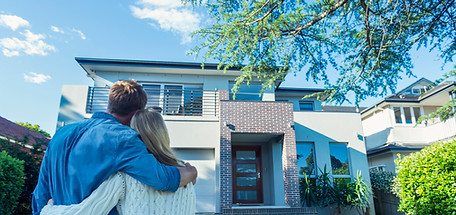FREQUENTLY ASKED QUESTIONS

What does a home inspector do?
A certified home inspector has a thorough checklist of what qualifies as a structurally sound and properly working residence. The checklist includes such items as a stable foundation, a secure roof with no leaks, plumbing that works correctly, central air functioning as expected and electrical outlets and fixtures working properly. There are many other requirements that are looked at during a home inspection. Check our services page for more details of the items that will be inspected during your home inspection.
Why do I need a home inspection?
The intention of a home inspection is to locate any potential areas of concern and whether or not there are structural problems or cosmetic issues. Most potential home buyers get a home inspection strictly for peace of mind to make sure that when they sign on the dotted line and own the home, the roof doesn't need replacing immediately or the foundation is crumbling. It is common, during the negotiation process, for home buyers and sellers to haggle over whether certain inspection points will be replaced or repaired and who will pay the costs. When buying or selling a home, the home inspection is often a part of the overall process of negotiation and may be used to protect yourself from stepping into a bad situation that could cost tens of thousands of dollars down the road.

I'm buying a new construction house with a warranty. Do I still need a home inspection?
Buyers of new construction homes can greatly benefit from using a professional home inspector during the construction and completion of their new home. City inspectors who are charged with inspecting properties during construction and enforcing city building codes do not spend nearly the same amount of time inspecting your home as your independent home inspector does. Home inspectors often find more issues with new construction homes than with resale properties. New construction home buyers often choose to also have a second inspection a month or two before the new home warranty expires so that any new or lingering issues may be addressed by the builder, at the builder's expense.

Do I need to be present for the home inspection?
The homeowner is not required to be in attendance during the home inspection. Technically, the home buyer and realtor also do not need to be on site during the inspection but it is advisable, if at all possible, so that issues being reported can be addressed and pointed out to the potential home purchaser.
How long will the inspection take?
The length of time needed to thoroughly inspect a residence depends on the size, age and condition of the property. In general, you should allow at least 3 to 3.5 hours for a full inspection of the house and all its systems.
What do I need to do to prepare for my home inspection?
A seller can prepare for a home inspection by addressing all known issues before the inspection takes place. They should also make sure there is a clear path around all the mechanical items, including the furnace, water heater and electrical panel and make sure there is easy access to attic hatches and basement floors and walls. Home buyers should prepare questions in advance about the house systems and locations of electrical and water shut-offs, etc. They should also be prepared to jot down notes for future reference.
Will I need Radon Testing?
We strongly recommend every home be tested for the presence of radon gas. Radon is a naturally occurring radioactive gas. It is produced in the ground through the normal decay of uranium and radium. High radon levels have been found in every state. Radon levels vary from home to home and you can not gauge the radon level in your home by the results in a neighbor’s home. Although some scientists dispute the precise number of deaths due to radon, all major health organizations, including the Centers for Disease Control, the American Lung Association and the American Medical Association agree with estimates that radon causes thousands of preventable lung cancer deaths every year. Millions of homes have elevated radon levels. Once you know the radon level in your home, there are steps you can take to mitigate or eliminate its harmful effects, if necessary.
Is a home inspection really that important?
For Home Buyers: Emotion often affects the buyer and makes it hard to imagine any problems with their new home. A buyer needs a home inspection to find out all the potential problems with the home before making their purchase. New construction home buyers often choose to have a second inspection a month or two before the new home warranty expires so that any new or lingering issues may be addressed by the builder, at the builder's expense.
For Home Sellers: More and more sellers are choosing to have a thorough inspection before or when they first list their home. First and foremost, you should have a home inspection for full disclosure. You will have demonstrated that you did all you could do to reveal any defects within the home. Second, you will save money and hassle by knowing and addressing any defects now, not after you have already negotiated a price and are faced with costly repairs discovered on the buyer's inspection.



.png)
